society
Self reliance: NGO trains over 200 persons on entrepreneurship empowerment in Edo


By Omoregie Elvis, Benin
The Initiative for Poverty Elimination and Rural Community Upliftment, IPERCU, has trained over 200 persons on different self sustaining small businesses, including, cake baking, cinching meat pie and soap making.
Speaking on the efficacy of the initiative to the graduating students, the IPERU National Coordinator/Initiator, Comrade Inegbenehi Sylvester said that he decided to give back to the society in the little way he can, because youths occupy a larger section of the society.
According to him, “what I’m doing is a way of giving back to the society, I actually want to impact the life of my people, especially the young ones who represent the larger population of the entire society.
“I will be happy seeing these my graduates today becoming positive boss and agents that will drive a better Edo and Nigeria that we clamour for in our generation and a better person in the nearest future.”
He tasked other positive minded individuals in the society to always join hands with government in fighting unemployment, saying that with moves like this, unemployment would soon become a thing of the past.
“The aim of this NGO is to drive poverty away from our environment and from their brains, by restructuring their mentality.
“We will help them to source for grants so that they can take off from where they are presently,” Com. Sylvester added.
One of the graduating Student, Miss Oronsaye Osariemen said that the one week intensive training was very productive and revealing, with the secrets of producing washing soap and body cream, using the natural means.
Presenting a cake on behalf of the graduands, Mrs Osagie Efe of the baking unite said the training was able to expose her to the potentials in the confectionery industry, ranging from cake baking, meat pie, egg roll and chin-chin.
She thanked those who contributed to the success of the initiative, describing it as well attended.
society
HOPE BEYOND THE WALLS 2026: ASSOCIATION OF MODELS SUCCESSFULLY SECURES RELEASE OF AN INMATE, CALLS FOR CONTINUED SUPPORT

HOPE BEYOND THE WALLS 2026: ASSOCIATION OF MODELS SUCCESSFULLY SECURES RELEASE OF AN INMATE, CALLS FOR CONTINUED SUPPORT
The Association of Models (AOMNGO) proudly announces the successful completion of the first edition of Hope Beyond the Walls 2026, a humanitarian initiative dedicated to restoring hope and freedom to deserving inmates.
Despite enormous challenges, financial pressure, emotional strain, and operational stress, the organization remained committed to its mission. Through perseverance, faith, and collective support, one inmate has successfully regained freedom a powerful reminder that hope is stronger than circumstance.
This milestone did not come easily.
Behind the scenes were weeks of coordination, advocacy, fundraising, documentation, and intense engagement. There were moments of uncertainty, but the determination to give someone a second chance kept the vision alive.
Today, the Association of Models gives heartfelt appreciation to all partners and sponsors, both locally and internationally, who stood with us mentally, financially, morally, and physically.
Special Recognition and Appreciation To:
Correctional Service Zonal Headquarters Zone A Ikoyi
Esan Dele
Ololade Bakare
Ify
Kweme
Taiwo & Kehinde Solagbade
Segun
Mr David Olayiwola
Mr David Alabi
PPF Zion International
OlasGlam International
Razor
Mr Obinna
Mr Dele Bakare (VOB International)
Tawio Bakare
Kehinde Bakare
Hannah Bakare
Mrs Doyin Adeyemi
Shade Daniel
Mr Seyi United States
Toxan Global Enterprises Prison
Adeleke Otejo
Favour
Yetty Mama
Loko Tobi Jeannette
MOSES OLUWATOSIN OKIKIADE
Moses Okikiade
(Provenience Enterprise)
We also acknowledge the numerous businesses and private supporters whose names may not be individually mentioned but whose contributions were instrumental in achieving this success.
Your generosity made freedom possible.
A CALL TO ACTION
Hope Beyond the Walls is not a one-time event. It is a movement.
There are still many deserving inmates waiting for a second chance individuals who simply need financial assistance, legal support, and advocacy to reunite with their families and rebuild their lives.
The Association of Models is therefore calling on:
Corporate organizations
Local and international sponsors
Philanthropists
Faith-based organizations
Community leaders
Individuals with a heart for impact
to partner with us.
Our vision is clear:
To secure the release of inmates regularly monthly, quarterly, or during special intervention periods through structured support and transparent collaboration.
HOW TO SUPPORT
Interested partners and supporters can reach out via
Social Media: Official Handles Hope In Motion
Donations and sponsorship inquiries are welcome.
Together, we can turn difficult stories into testimonies of restoration.
ABOUT AOMNGO
The Association of Models (AOMNGO) is a humanitarian driven organization committed to advocacy, empowerment, and social impact. Through projects like Hope Beyond the Walls, the organization works tirelessly to restore dignity and create opportunities for individuals seeking a second chance.
“When we come together, walls fall and hope rises.”
For media interviews, partnerships, and sponsorship discussions, please contact the Association of Models directly.
society
SENATOR ADEOLA YAYI REGISTERS 4000 JAMB CANDIDATES
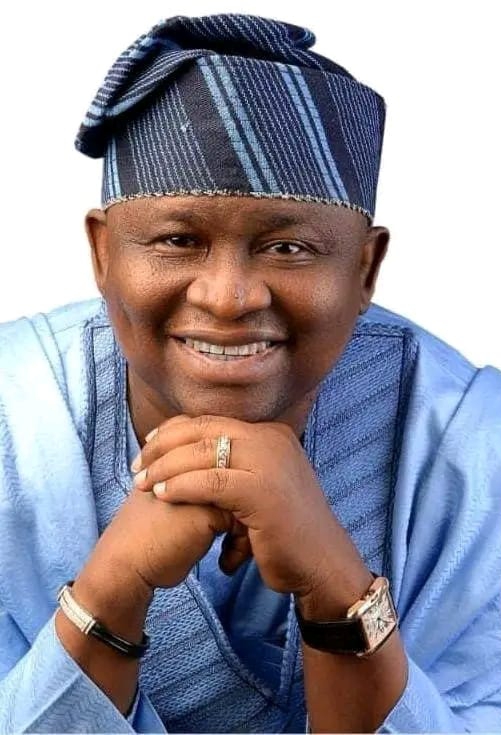
SENATOR ADEOLA YAYI REGISTERS 4000 JAMB CANDIDATES
In continuation of his educational support initiatives and following established tradition, Senator Solomon Adeola (APC,Ogun West) has successfully paid for and enrolled 4000 indigent students for the 2026 Joint Admission Matriculation Board(JAMB) examination.
According to a release e-signed and made available to members of the League of Yewa-Awori Media Practitioners (LOYAMP) by High Chief Kayode Odunaro, Media Adviser to Senator Adeola and shared with (your mediu), the programme financed by the senator under the “SEN YAYI FREE JAMB 2026” ended on Saturday , February 21, 2026, with a total of 4000 candidates successfully enrolled with their PINs provided.
Commenting on the success of the programme, Senator Adeola said the programme is another leg of his personal educational empowerment for indigent but brilliant citizens preparatory to his scholarship and bursary facilitation for tertiary education institutions’ students.
“As far as I can help it, none of our children will miss educational opportunities arising out of adverse economic predicament of their parents or guardians”, he stated.
Successful candidates cut across all the three senatorial districts of Ogun State with 2183 coming from Ogun West, 1358 coming from Ogun Central and 418 from Ogun East.
Some of the candidates that applied and are yet to get their PINs due wrong information supplied in their profiles and being underage as discovered by JAMB and other reasons are being further assisted to see the possibility of getting their PINs.
The Free JAMB programme of the Senator that has been running for years is well received by appreciative beneficiaries and their parents.
Alhaji Suara Adeyemi from Ipokia Local Government whose daughter successfully got her PIN in the programme said the Senator’s gesture was a welcome financial relief for his family at this period after payment of numerous school fees of other siblings of the beneficiary seeking admission to higher institution.
Also posting on the social media handle of the Senator, a beneficiary Mr. Henry Olaitan, from Odeda LGA said that he would have missed doing the entry examination as his guardian cannot afford the fees for himself and two of his children.
society
House Committee Seeks Stronger Financial Backing for Federal Character Commission
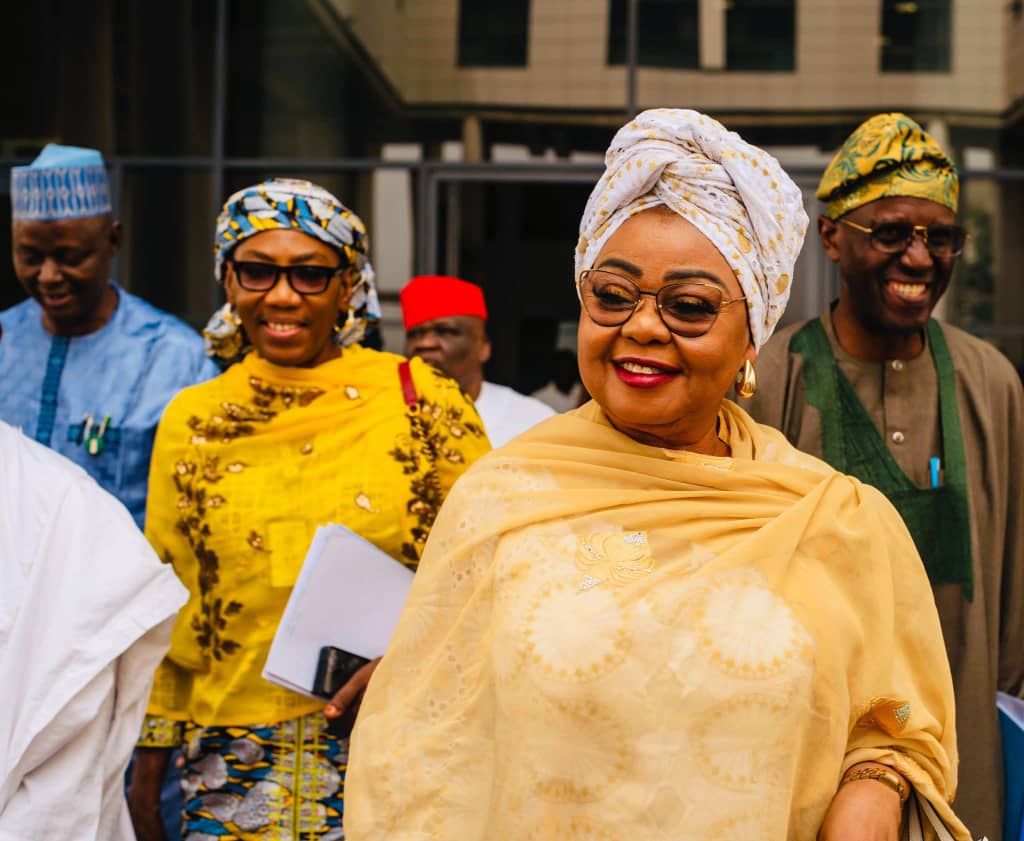
House Committee Seeks Stronger Financial Backing for Federal Character Commission
The Executive Chairman of the Federal Character Commission (FCC), Honorable Hulayat Motunrayo Omidiran, has reassured the commitment of her new leadership to reposition the Commission and strengthen enforcement of the federal character principle, despite prevailing funding challenges.
Hon. Omidiran made this known during the Commission’s budget defence before the House of Representatives Committee on Federal Character at the National Assembly on Friday, February 19, 2026.
The Executive Chairman opened up on inadequate funding has continued to constrain the Commission’s statutory activities, including nationwide monitoring, compliance audits and enforcement measures across Ministries, Departments and Agencies (MDAs).
“We are focused and determined to do the work that the Constitution and the President have entrusted us with,” Omidiran stated.
The FCC Boss, however, assured lawmakers that the Commission remains resolute in ensuring equity, fairness and balanced representation in line with its constitutional mandate.
“As a Commission, it is our responsibility to engage with relevant government parastatals and ministries to secure the necessary funding we require. We believe that with consultation and collaboration, it will be a successful venture for the Commission.”
Earlier, the Chairman of the House Committee on Federal Character, RT. Hon. Ahmed Idris Wase, expressed deep concern over what he described as near-zero budgetary allocation to the Commission, stressing that such financial inadequacies severely undermine its operational effectiveness.
The Plateau State lawmaker assured the Commission of the Committee’s firm legislative backing in advocating for improved funding and strengthening the Commission’s capacity to fully exercise its constitutional mandate.
“We cannot reasonably expect the Federal Character Commission to enforce compliance across Ministries, Departments, and Agencies while grappling with insufficient funding,” Hon. Wase remarked.
“If we are genuinely committed to fairness, equity, and national cohesion, then we must be deliberate in adequately funding the institution established to safeguard these principles.
“As a Committee, we shall work closely with the leadership of the Commission to ensure that its budgetary provisions reflect the magnitude of its mandate. The era of skeletal or token funding must give way to realistic and sustainable financial support,” he concluded.
The budget defence session concluded on a note of renewed collaboration between the House of Representatives and the Commission, reflecting a shared determination to strengthen institutional capacity, enhance accountability, and promote equitable representation within Nigeria’s public service.
SIGNED:
Ademola Lawrence
Spokesperson,
Federal Character Commission
February 20, 2026
-

 celebrity radar - gossips6 months ago
celebrity radar - gossips6 months agoWhy Babangida’s Hilltop Home Became Nigeria’s Political “Mecca”
-

 society6 months ago
society6 months agoPower is a Loan, Not a Possession: The Sacred Duty of Planting People
-

 society5 months ago
society5 months agoReligion: Africa’s Oldest Weapon of Enslavement and the Forgotten Truth
-

 news6 months ago
news6 months agoTHE APPOINTMENT OF WASIU AYINDE BY THE FEDERAL GOVERNMENT AS AN AMBASSADOR SOUNDS EMBARRASSING




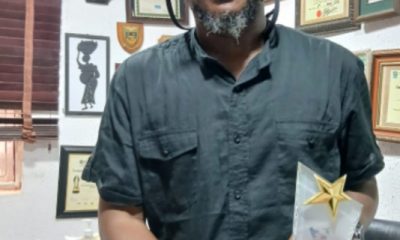

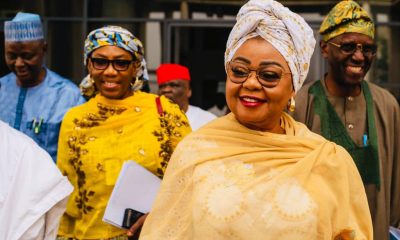



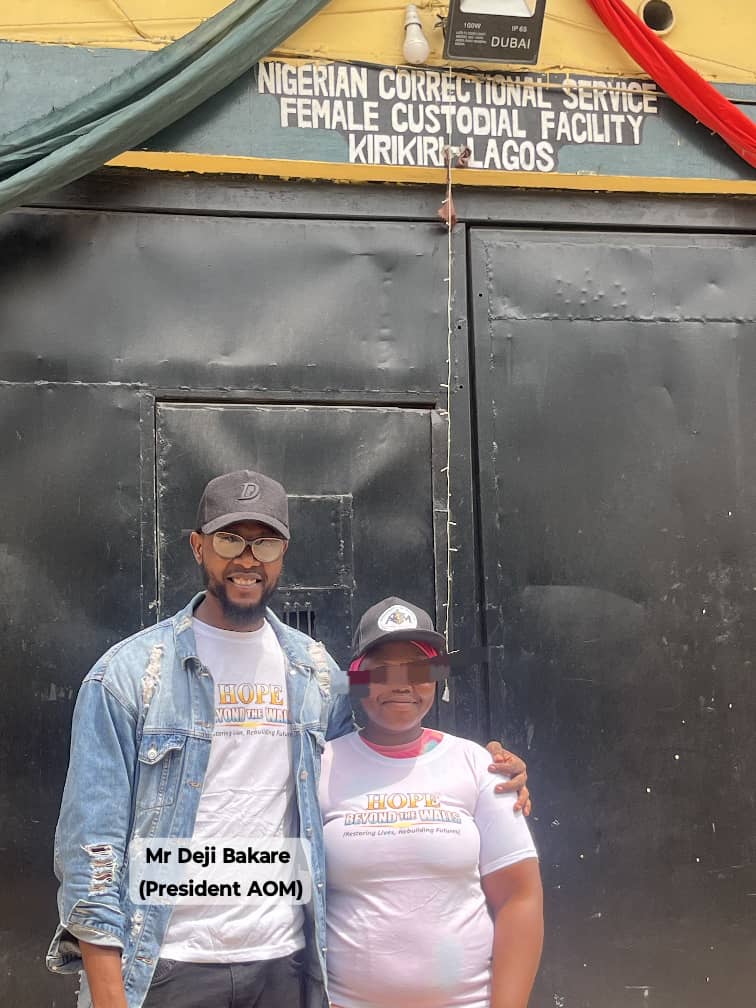

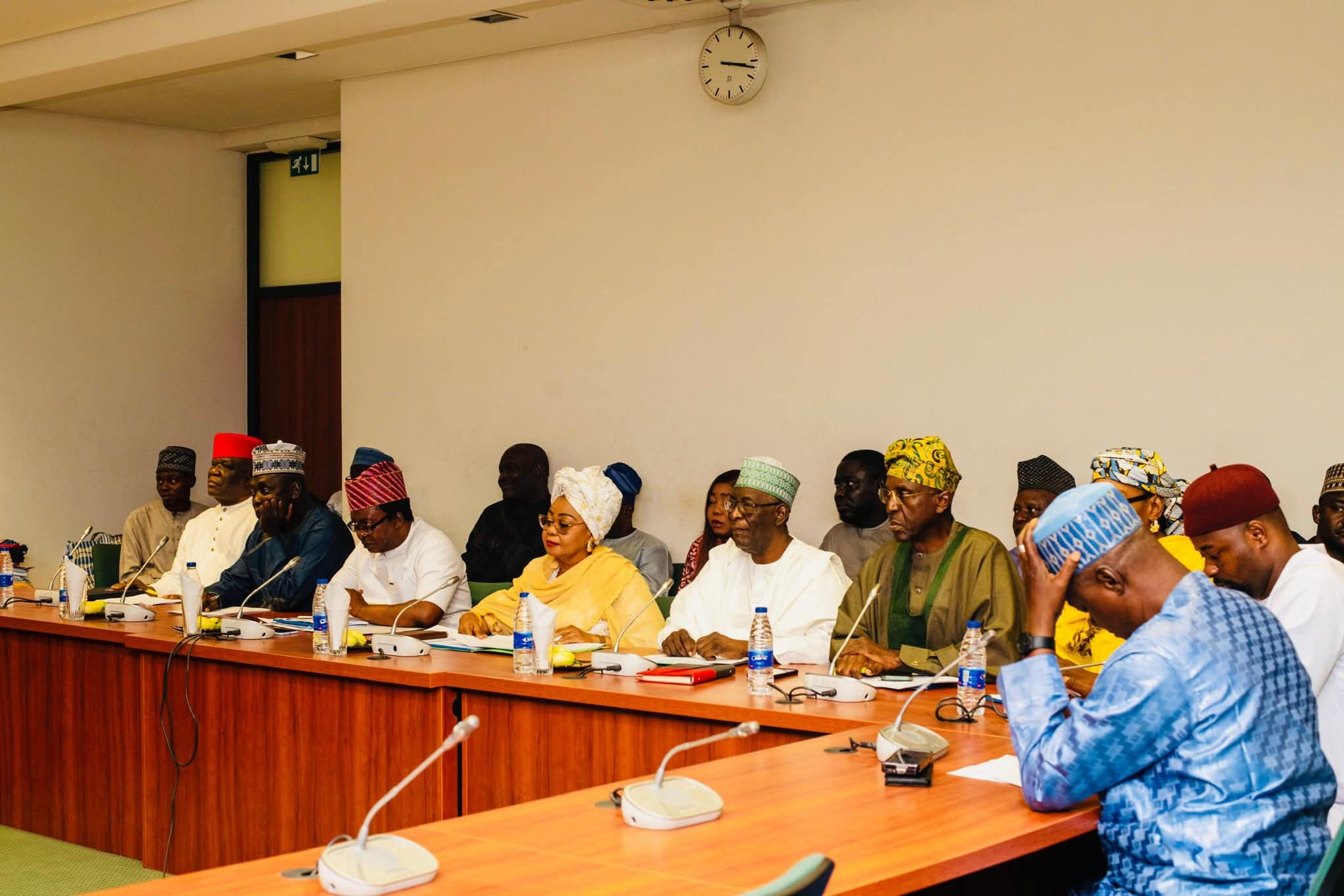

You must be logged in to post a comment Login